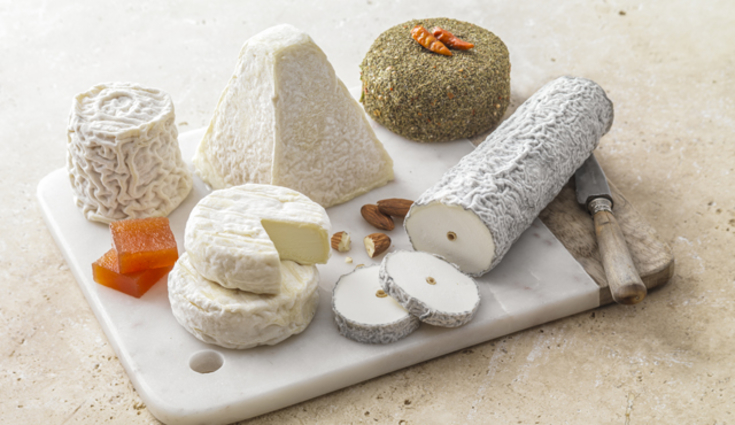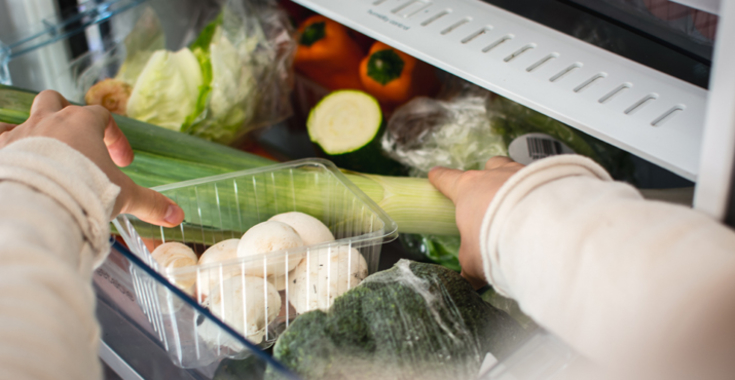
What if goat cheese made its way onto your brunch menu?
Discover some recipe ideas that will make you happy ab1
We love it as an appetizer, in a salad, in cooking and on a cheese board … yet short of being totally addicted to goat cheese, you’re going to need to store and keep it. Although the cave or ripening room where the goat cheese was matured would be the perfect storage location, we need to find a home-based solution. Packaging, storage and shelf life: discover all our tips for keeping goat cheese so it can reveal its flavour and aromas each time you taste it.

Your “Wine & Cheese” night is ending, or dinner with friends is almost over. It's time to store your cheese until the next meal or appetizer! But before you place them in the refrigerator, it’s important to wrap your cheeses correctly.
All of this is possible by simply reusing the original packaging.
You threw it away already? Well, no need to panic. You can wrap each cheese individually in parchment paper, aluminum foil or plastic wrap. Or you could opt for a cheese box which not only stores your cheeses easily, but also keeps them apart from other foods stored in the refrigerator.
The refrigerator is obviously the most convenient place for storing cheeses. Provided, of course, that you stick to a few basic rules. Cheese is especially sensitive to humidity and hates being too cold as this dulls its aromas and texture.
So then, the vegetable drawer is the perfect cheese storage location in the refrigerator. With a temperature normally between 8 °C and 10 °C, its atmosphere is quite similar to that of a cave.

Depending on your tastes and preferences for goat cheese, you can also place well-aged cheeses in the middle of your refrigerator between 4 °C and 6 °C, or to stop ripening of fresh cheese, you should store it in the top of the refrigerator between 0 °C and 4 °C.
The shelf life of a cheese above all depends on how long it was aged. The fresher a cheese and the higher its water content, the shorter its shelf life. Conversely, the more aged and drier a cheese is, the longer it will keep. By adopting good wrapping and storage habits, your cheese could last for 2 to 3 weeks, and it will be more hygienic and taste better.
What should you do if your guests weren’t very hungry or you end up having more leftover cheese than expected? Well, some cheeses, including goat cheeses, can be frozen to keep them for a little longer. But be careful, once again, there are a few rules we need to adhere to!
Dry goat cheeses and Semi-hard cheeses can withstand freezing and thawing quite well. This is not the case for Fresh goat cheeses and Ripened goat cheeses whose texture and flavour can be altered by the thawing process. Freezing your Ripened goat logs is not recommended. However, it is possible to freeze meals and culinary preparations containing cooked cheese without any issues.
To do this, start by wrapping the cheeses properly (see our tips on how to wrap), then place them in an airtight container, preferably one made of glass, since plastic has the annoying tendency to soak up odors. Since freezing does not entirely stop ripening, cheese that has been frozen should be eaten within two months. And of course, in any case, a cheese can only be frozen and thawed once.